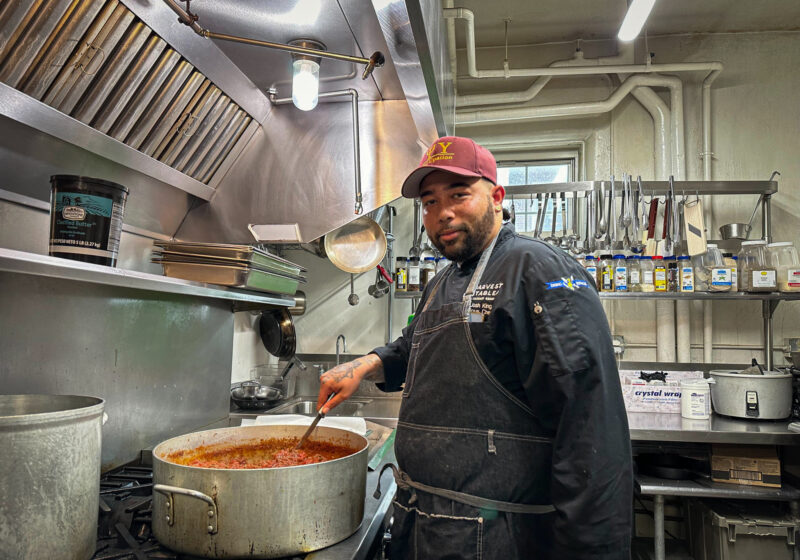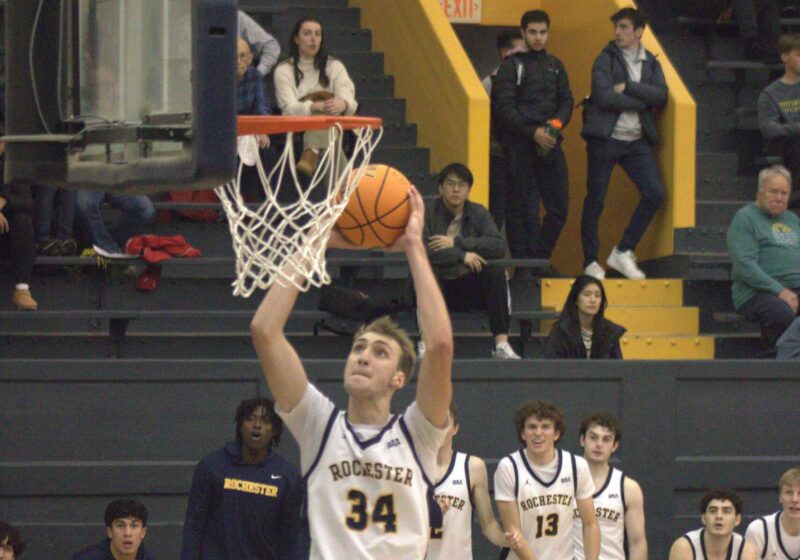There has been a 57 percent increase in the number of pest control activities concerning mice and a 21 percent increase in such activities concerning American and German roaches in River Campus buildings during the beginning of this fiscal school year, fromJuly 1 through Oct. 31.
Pest control activities include complaint calls, inspections and follow-ups.
“Overall the numbers have increased,” senior sanitarian Peter Castronovo said. “Not to the point where it’s out of control, but [they have] increased.”
In the same time period from 2008 to 2010, 105 activities concerning mice were reported — this year, that number jumped to 165. For roaches, the number increased from 100 to 121. There is a low level of German roach activity though — most of the roaches were found to be American, which are bigger, but not as hard to get rid of.
According to Castronovo, the issue is not widespread — it is instead concentrated in certain pockets on campus. The three areas that have seen the largest increases are buildings on the Fraternity Quadrangle, Susan B. Anthony Hall and Wilson Commons — three of the areas closest to recent construction on campus. Renovations to Danforth Dining Center and the erection of Raymond F. LeChase Hall are a connection to the increase in pests that Castronovo believes is not something to dismiss, whether or not it can be blamed for 100 percent of this increase.
“There’s a price to pay for growth and for repairs and for renovations,” he said.
Castronovo explained that a mouse problem was expected before renovations began on Danforth — pipes were being ripped up, doors were kept wide open and contractors were eating in the space all summer — it was essentially an open house.
In anticipation of a pest increase, traps were set up before students returned from summer vacation — and not in vain either; approximately 30 mice were caught. There are plans to put out more traps during Thanksgiving break.
There has not been an increase in complaints to the Office for Residential Life & Housing Services from students, according to director Laurel Contomanolis. Castronovo, though, explained that although it is common for a large number of calls concerning complaints about pests to come through in the beginning of the year, they usually begin to dissipate as the months go by.
One explanation for this is that pests such as roaches live in the sewer system and come up through dry drains. Since most dorm showers are not used during the summer, the drains dry out and allow opportunities for roaches to appear. Once the showers are used more frequently the problems subside.
Castronovo has noticed not an increase in calls to the office of Environmental Health & Safety (EH&S), but a continuation of the large amount seen in the beginning of the year.
“I think it’s been a dawning thing where the numbers are still busy,” he said. “Not as busy as early September, but now we’re into mid-November, and they’re still busier than they had been in past years.”
Despite this rise in mice and roaches, there will not be a significant increase in extermination costs for the University since EH&S does not charge for its services.
Even without the recent influx of construction, there would of course not be a complete absence of pests.
“In a college campus we cannot expect to be 100 percent pest-free,” Castronovo said.
But what can be done to stem these issues before they get worse?
“Be a better housekeeper in your room — that helps things,” Contomanolis said. She suggested being careful not to leave food lying around and to seal it properly and noted that it is also imperative that students report pest sightings.
“We want to get rid of them too — it’s not ideal,” she said.
EH&S is currently working with facilities to prevent the mice and roaches from spreading from one room to another, as well as communicating with RAs and Graduate Head Residents to let students know what is happening, make sure drains don’t dry out and put out bait for roaches.
Senior class senator Becky Donnelly suggested using no-kill traps for mice in a Students’ Association meeting on Oct. 31.
“A few residents have been upset by the kill traps and having to dispose of carcasses — or by kill traps that didn’t successfully kill the mouse and snap on its body such that the mouse is suffering,” she said.
Castronovo was not in favor of the idea. He explained that, once caught, the only place they can be deposited is on campus, which would only transfer the problem to other areas.
He believes that the problem is not out of control.
“Even though we’ve had an increase in American roaches and mice, we’re addressing it,” he said. “It’s part of the pains of a growing university.”
Goldin is a member of the class of 2013.





